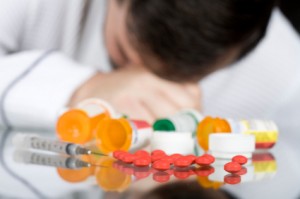Stimulant Addiction Treatment
Millions of people are addicted to powerful stimulants such as methamphetamine, Adderall or other forms of prescription medication and need help. Stimulants addiction treatment is available in an array of different formats and techniques that cater to the individual needs of each person in need of help providing a wide range of services for optimal recovery. While psychotherapy remains the most profound method of stimulant addiction treatment available at this time, new options are evolving to help master the art of providing comprehensive treatment and care for those in need.
According to the Semel Institute, behavioral therapies are commonly used to treat prescription stimulant addictions. Although there are no federally approved medications for the treatment of stimulant addiction, studies are being conducted in the area of medication based addiction treatment but continue to be controversial and unfounded by hard evidence.
Tapering the Dose
Most treatment professionals and doctors alike recommend that stimulant addiction be first treated using a method of tapering off the medication to prevent or minimize withdrawal symptoms. Tapering off a dose involves gradually lowering the dose of the medication to allow the body time to adjust without going into panic mode. Tapering off the stimulant that is being abused will greatly reduce the risk of withdrawal and may even eliminate symptoms completely depending on the level of drug use, the individual user and other factors.
Detoxification

Stimulant Addiction Treatment can help you get your life back!
Stimulant addiction treatment cannot fully begin until the user is no longer feeling the physical effects of the drug being abused. Detoxification is the process of eliminating the toxins from the body so that the user can prepare for their time in treatment and the behavioral counseling that is to ensue. Stimulant detox can be challenging, especially if the drug was not tapered off first.
The process of detoxing from stimulants can take about two weeks to complete but may take longer if the drug is gradually tapered off to prevent withdrawal. During detox the user will feel a number of symptoms and should be medically monitored to ensure continued safety.
Behavioral Therapy
Stimulant addiction treatment involves behavioral therapy such as contingency management, cognitive-behavior therapy and similar approaches that look to help the user better cope with their thoughts and behaviors as they associate with their addiction. Behavioral therapy has many benefits and can be tailored to the very unique and individual needs of the user making it a more effective, personal approach to treatment of stimulant addiction.
The benefits of behavioral therapy for stimulant addiction treatment include:
- development of positive thought patterns and processes
- development of stronger support networks
- improved self-esteem
- resistance to peer pressure and pressure from outside sources
- affordable treatment that can be tailored to unique needs of the user
- ability to adjust or change treatment as the user moves forward with recovery
- a means to an eventual end—behavioral therapy is not an ongoing, forever method of treatment
Tips for Choosing the Right Stimulant Addiction Treatment Program for You
When to Seek Stimulant Addiction Treatment
If you or someone you love is addicted to stimulants, there can be some challenges associated with determining when it’s time to seek help. Not all people will require treatment but for some, without professional help, there is little hope for full recovery.
Consider seeking stimulant addiction treatment if:
- you use stimulants to get high
- you use stimulants to mask your mood
- you use stimulants despite known health consequences
- you use stimulants despite problems being caused in your family
- you use stimulants even when you’ve been in trouble for such use before
- you have tried to quit using stimulants and cannot do so on your own
These are just a few of the signs that you may need help overcoming stimulant addiction. Professional treatment for stimulant addiction will include an array of treatment methods such as counseling, therapy and support which will come together to help you get – and stay – sober.
There is no better time than the present to seek professional treatment for stimulant addiction. Allowing the addiction to progress or to spiral out of control will only allow matters to become worsened and will complicate the treatment process. It’s best to seek professional help as soon as it is realized that professional help is needed.
If you suspect that you or someone you know needs help, consider seeking professional support in a caring environment as soon as possible. Treatment for stimulant addiction may take time but it will be beneficial to your overall health and to your recovery. In time, you will feel better and realize that treatment was the best thing that you could have ever done for yourself.
Calls to the general helpline will be answered by a paid advertiser. By calling the helpline you agree to our terms of use.




























